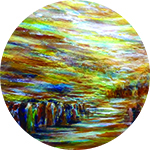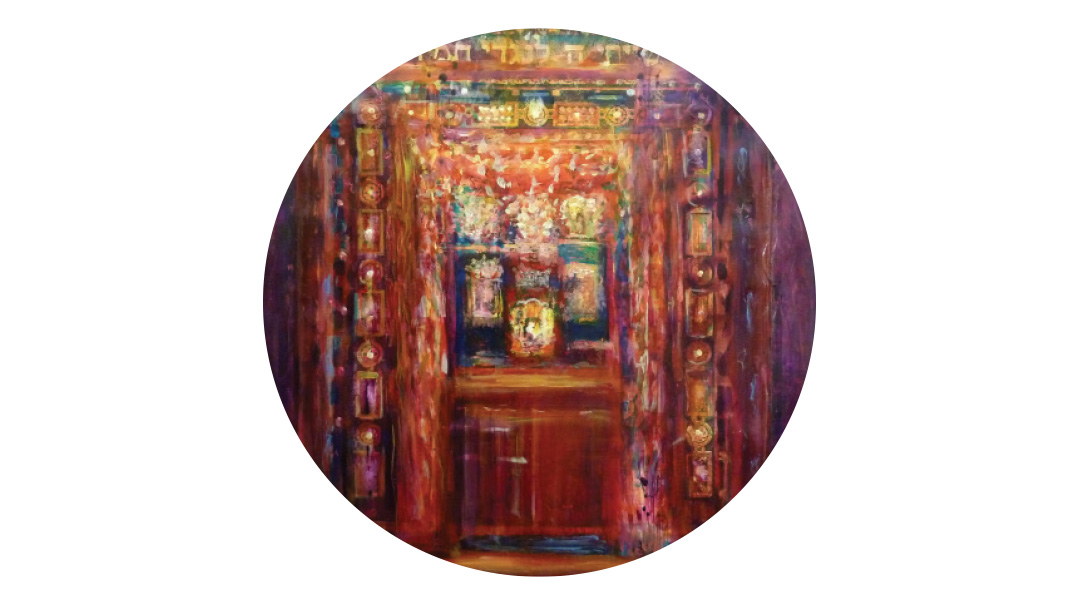The Finished Product

We all want to be perfect already

S o much of our time is spent on food preparation. Wouldn’t it be wonderful if challah kugels and desserts would grow from the ground ready to be plucked and eaten? While this may seem like fantasy the Gemara tells us that in asid lavo in the future world rolls will sprout from the ground in Eretz Yisrael.
Certainly the Creator could have fashioned our world in a way that there would be no need for the long drawn-out process of planting harvesting grinding wheat into flour forming it into dough and baking. Challah bread and baked goods could have all been created as finished products.
As we know everything in the physical world has a parallel in the spiritual world.
The Raw Materials
In the physical world Hashem provides the raw materials and we need to go through the arduous process of using those raw materials to create a finished product. In the ruchniyus world as well Hashem provides each individual with the raw materials — his unique middos and personality traits. Every person then needs to go through the difficult process of developing and refining those traits until he makes himself into an adam shaleim a complete and perfected individual.
This idea is expressed in the Midrash Tanchuma in parshas Tazria. The Midrash tells us that the wicked Roman general Turnus Rufus asked Rabi Akiva “Whose actions are more beautiful Hashem’s or man’s?”
Understanding Turnus Rufus’s motive in asking the question Rabi Akiva answered “Man’s actions are more beautiful.”
Later in the conversation Turnus Rufus asked the question that Rabi Akiva had anticipated. “Why do you Jews circumcise yourselves?”
Rabi Akiva brought wheat stalks and bread rolls to the general and said “The wheat is Hashem’s handiwork; the rolls are man’s. Aren’t the rolls more beautiful than the wheat?”
Rabi Akiva was explaining to Turnus Rufus that just as wheat is created in an unfinished form so too a baby boy is created in an unfinished form uncircumcised. Hashem left it up to man to make himself whole by performing the mitzvah of bris milah.
Partners in Creation
Just as the physical world is created incomplete and a baby boy is created incomplete so too we are all created spiritually incomplete. In fact Rav Moshe Chaim Luzzatto in Daas Tevunos states that this idea is the foundation upon which everything else is built. A person must recognize that he is born imperfect and that his purpose in life is to perfect himself and perfect everything in the world that was created for him. The Ramchal further explains that this concept is reflected in the name of Hashem “Shakai ” which means that Hashem said to the world “Dai — enough.” Hashem halted creation before it was complete to enable man to complete it.
The Torah tells us that before creating Adam Hashem said “Naaseh Adam — let us make man” (Bereishis 1:26). Who is the “us” that Hashem is referring to? The Baal Shem Tov explains that “us” refers to Hashem and Adam. Hashem was telling Adam “Let us make man — together you and I.” Hashem provides the raw materials of the body and the personality traits and man develops and refines those traits thereby becoming Hashem’s partner in creating himself.
In the asid lavo a person will no longer have the opportunity to work on developing and refining himself. Perhaps that is why rolls will emerge ready to be eaten without any effort on the part of man as a reflection of the new spiritual reality.
The Vilna Gaon comments on the pasuk (Mishlei 4:13) “Hachazeik bamussar al teref nitzreha ki hi chayecha — Hold on to mussar don’t let go. Guard it because it is your life.” He explains that the entire purpose of life is for a person is to fix those middos in his personality that require fixing. He therefore needs to constantly strengthen himself. If he doesn’t the Vilna Gaon asks of what purpose is his life?
Eisav’s name represents the opposite perspective. Eisav means finished. This is the way I am and this is how I’ll always be. There’s no reason for me to work on myself to change.
Yaakov’s name on the other hand means heel. The heel represents the attitude that right now I am on the bottom; I need to work to reach the top. It is the heel that propels a person forward as he walks. The heel represents movement and growth which is a defining quality of Yaakov and of the nation that descended from him.
Deliberate Imperfection
The problem is that we all want to be perfect already without expending any effort. We want it to be part of our nature that we are calm and patient selfless and generous wise and insightful. When we’re lacking in any quality or character trait we feel lesser and deficient. We’re often very hard on ourselves and feel that our deficiencies are “proof” that we are not good or capable or smart. But what we need to remember is that Hashem deliberately created us imperfect. Our worth is measured not by the qualities we were born with but rather by how much we have worked to perfect the qualities we were born with.
When we find ourselves bemoaning the fact that we are deficient in this trait or lacking in that one we need to switch gears and say to ourselves: “Yes I am imperfect. Hashem created me that way so that I can perfect myself. What do I need to do to improve my faulty middos?”
When we get stuck in the mire of our mistakes we must consciously change the direction of our thoughts and focus on the future instead of the past. We can tell ourselves: “Yes I made mistakes perhaps big ones. I regret those mistakes and the consequences they may have caused. Now I am going to focus on how not to make the same mistakes in the future.”
Thinking this way requires practice and determination. If we succeed however it can be literally life-transforming.
The yetzer hara uses many tactics to prevent us from accomplishing our purpose in life. One of his most common and effective tactics is to make us lose belief in ourselves convincing us that we are worthless because we have imperfections and make mistakes.
As Rabbi Dr. Abraham J. Twerski writes in his excellent book Letters to My Children we need to identify our feelings of lack of self-worth as the machinations of the yetzer hara. We need to recognize that our intense feelings of unworthiness are a ploy of the yetzer hara to prevent us from changing ourselves. The yetzer hara wants us to be so focused on how worthless we are that we will not do anything to make ourselves become people of worth.
Just as we are on guard to fight back when the yetzer hara entices us to say lashon hara or eat something of questionable kashrus we need to be on guard to fight back when the yetzer hara tries to convince us to feel inferior due to our many imperfections.
Dovid Hamelech says in Tehillim “Dacho dechisani linpol va’Hashem azarani — They push me down again and again but Hashem helps me” (Tehillim 118:13). Rabbi Dr. Twerski quotes the Alter of Kelm who explains the pasuk to mean that there is a powerful force within each person that wants to push him down and crush him by making him feel worthless. Va’Hashem azarani.
It is only with Hashem’s help that we can pick ourselves up and move forward as we accept our imperfections and commit to working diligently to make ourselves into a finished product that Hashem will be proud of.
Originally featured in Family First Issue 574. Rebbetzin Suri Gibber has been involved in chinuch habanos for decades first as general studies principal in Bais Yaakov High School of Miami and for the past 15 years as principal of Bais Yaakov High School of the Twin Cities. She gives adult education classes as well.
Oops! We could not locate your form.







